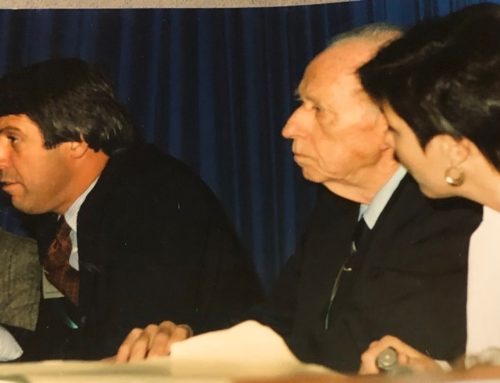Most of the important tools used in consulting with families in business are not carried in a briefcase. Certainly, there is much to be learned from taking classes about business, attending forums about consulting, and spending time with mentors. Over the years I have observed, however, that the most successful consultants for families in business come into the craft with some degree of natural talent. Who can force into anyone the discipline for research, the curiosity that makes a good listener, or the ability to reserve judgment? At what age can anyone achieve the patience of Job? Is there a set number of years of experience before a consultant knows how to read the room?
Human Contact, And The Loss Thereof
Regarding those consulting protocols that are known to be effective, I feel like there is good news and bad news. The bad news is that because of the pandemic, it is not prudent to travel, or to gather in even small groups without knowing if people are willing to wear masks or if they limit their social activities. The good news is the ability to video conference. If you think of the engagement flows of most in-person consultations, they usually begin the same. The first morning all the relevant family or team members arrive with an appearance of being neutral and somewhat expectant. By the lunch break and depending on the immediacy of the issues, those same players can be alarmed, angry, distant, skeptical, and/or smug (and the list goes on.) The afternoon session will begin in an entirely different mood, and the consultant can begin with a different tone or from another aspect of the family problems. From being together in the same room, the consultant can see who is slouching in their chair, who tries to peek surreptitiously at their phone, who keeps their eyes fixed on the table or the papers in front of them. The consultant is constantly reading the room to keep fingers on the pulse of any progress. Bringing all the players together in the same location was a tried-and-true process for most successful conflict resolutions. For now, that process is not available. We work with faces in video boxes.
The Consultant Has To Change
There is some irony in the notion that the consultant has had to make some changes to stay in the game. What is the option—put off dealing with the problems and hope for the best? Usually, by the time a consultant is called in, the family situation is well past that option. And what should a consultant do—decline the offer to step in because normal procedures cannot be implemented? So we are back to the face in the video box, and I, for one, am advocating that we learn to enjoy this new lemonade. Video conferencing is light years better than just voices over a phone line. Facial expressions can be observed and matched with verbal expressions. For me, it is also important to know who is sitting where (usually at a table.) This enables me to see who is watching whom. If eyes cut left, who is that person on the left, for example? Just as I would do if we were all together, I will watch the speaker, but I will also be keeping an eye on the others involved. I think it has been a somewhat difficult transition, but having voices and faces is still a boon.
Be Willing To Ask People For More
This strategy happened for me because it had to. There was no blinding-light epiphany. I paused an issue-related conversation to ask each member of the discussion how they were feeling about the meeting and about the issue now that new information had come to light. I went from face to face as I knew they were seated around a conference table. While there was some surprise and one or two eye-rolls, it did serve to re-engage all of us. Had I been in the room, I would have done it differently. This tactic of pausing the flow to re-engage has been my biggest compromise in consulting protocols, but I believe it has been effective. That is what I mean by irony: a consultant is present to ask others to change, but the consultant changing was not in the first list of solutions for consulting in the time of Covid.
Consulting for families in business has always been about finding ways to make things work. That we, as family business consultants, have had to find ways to make things work for ourselves is both fitting and humbling. I am reminded that the world has never stopped for catastrophes. It is up to us to persevere and persevere we will.
David Bork is an internationally acclaimed family business consultant, author, and speaker with five decades of experience, providing guidance to over 500 family business enterprises. A pioneer in the industry, David brings a wealth of knowledge and insight into the many challenges of running a successful family business and has assisted families in navigating their way through every imaginable family business issue. He is the author of The Little Red Book of Family Business and the online course, Re-Imagining Relationships for Families in Business. For more information about David Bork, visit FamilyBusinessMatters.Consulting.







